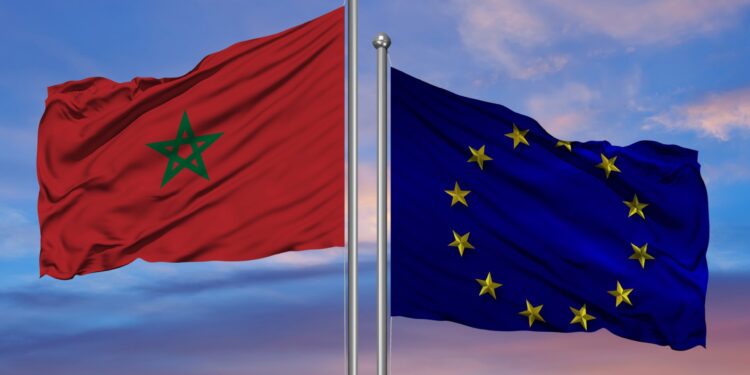The European Union intends to impose restrictions on foreign banks operating in the old continent, which negatively affects the financial transfers made by Moroccan immigrants residing in Europe.
This step comes with the rise of the extreme right in a number of European countries to the circles of government, and the restrictions on immigrants, in light of an unstable international economic reality.
In early February, the Moroccan Drainage Office (government) said that the remittances of migrants abroad amounted to about 117.7 billion dirhams (11.7 billion dollars) during 2024, recording a rise of 2.1% from 2023.
The number of Moroccan expatriates reaches 5 million, according to the statistics of the Moroccan Ministry of Foreign Affairs, and their transfers are the first source of foreign criticism in the Kingdom.
The European Union seeks to restrict financial transfers from foreign banks operating on its lands, including Moroccan banks, and subject them to European regulations.
If the European move succeeds in unifying the rules of all foreign banks, its control will enhance financial flows, and its costs rise, which will negatively reflect on the volume of financial transfers, especially the transfers of Moroccan immigrants.
The European Union intends to implement a new guidance that obliges foreign banks operating in Europe to create local branches subject to European regulations to continue their activities.
The move raised the concerns of the Moroccan authorities, despite Europe’s claim that it is directed to Britain only, after its official withdrawal from the European Union at the end of 2020.
European economic labor
Commenting on this, Moroccan economist Omar Al -Kettani says that “the current international context indicates that Europe is entering an economic crisis.”
In a statement to Anatolia, Al -Kettani explains that the upcoming European measures come in the context of an international economic labor after the return of US President Donald Trump to the White House.
He considers that Europe is “on the basis of economic and financial losses, which makes it search for new financial and economic resources and alternatives.”
Al -Kettani pointed out that Europe will be affected greatly after losing sources of funds resulting from oil refining, after Nigeria launched the largest oil refining refinery on the continent with 20 billion dollars. Production began with this refinery in January 2024.
The expert warns of the reflection of the European crisis expected on the Moroccan economy if the authorities do not take any measures, given that more than 60% of the country’s foreign trade is with the European Union.
Al -Kettani explained that the remittances of Moroccan expatriates play an important role in supporting the financial balance of Morocco’s economy, and contributes to the economic and social development of Moroccan families.
talks
Al -Kettani praises his country in negotiations with the European side, adding that “Morocco will be subject to some conditions and restrictions in the remittances of the Moroccan community.”
He explains that the restrictions “can constitute a great loss of the economy, given its large and important size.”
Al -Kettani believes that his country has strengths in negotiation, such as the great motivations it gives to foreign investments, and calls for the employment of this paper in negotiations with Europe.
On other alternatives to confront European measures, Al -Kettani stressed the need to strengthen Morocco’s economy, and not to rely on certain resources, such as financial transfers of expatriates, rain in the agricultural sector and tourism revenues, which are out of control.
At the end of last January, the Moroccan government announced that the volume of foreign investments amounted to 4 billion dollars during the first 9 months of 2024, which is the best in the country’s history.
Morocco is betting on foreign investments, in addition to the revenues of tourism and the transfers of Moroccan expatriates abroad, as well as industrial sectors such as cars and aviation.
Moroccan moves
Last December, the Governor of the Moroccan Central Bank (Bank Al -Maghrib), Abdel Latif Al -Jawahiri, announced negotiations that brought his country with the European Commission and some other countries, after the new European guidance.
Al -Jawahiri said, in a press conference, that “the bank communicated with the European Commission regarding the new directive, and assured him that the matter is not related to Morocco, but rather related to British banks.”
“We told them that this process relates to all non -European banks, and although it affects the British, it will also affect the interests of Moroccan banks,” he added.
Al -Jawahiri pointed out that “after negotiations with the European Commission more than once, negotiations were launched with European countries and banks, and a agreement will be reached that will open the door to consensus with the rest of the other countries.”
He pointed out that “this methodology adopted by Morocco was launched with France, and if an agreement is reached with it, the mission will facilitate with other countries, such as Spain, the Netherlands, Belgium and Italy.”



